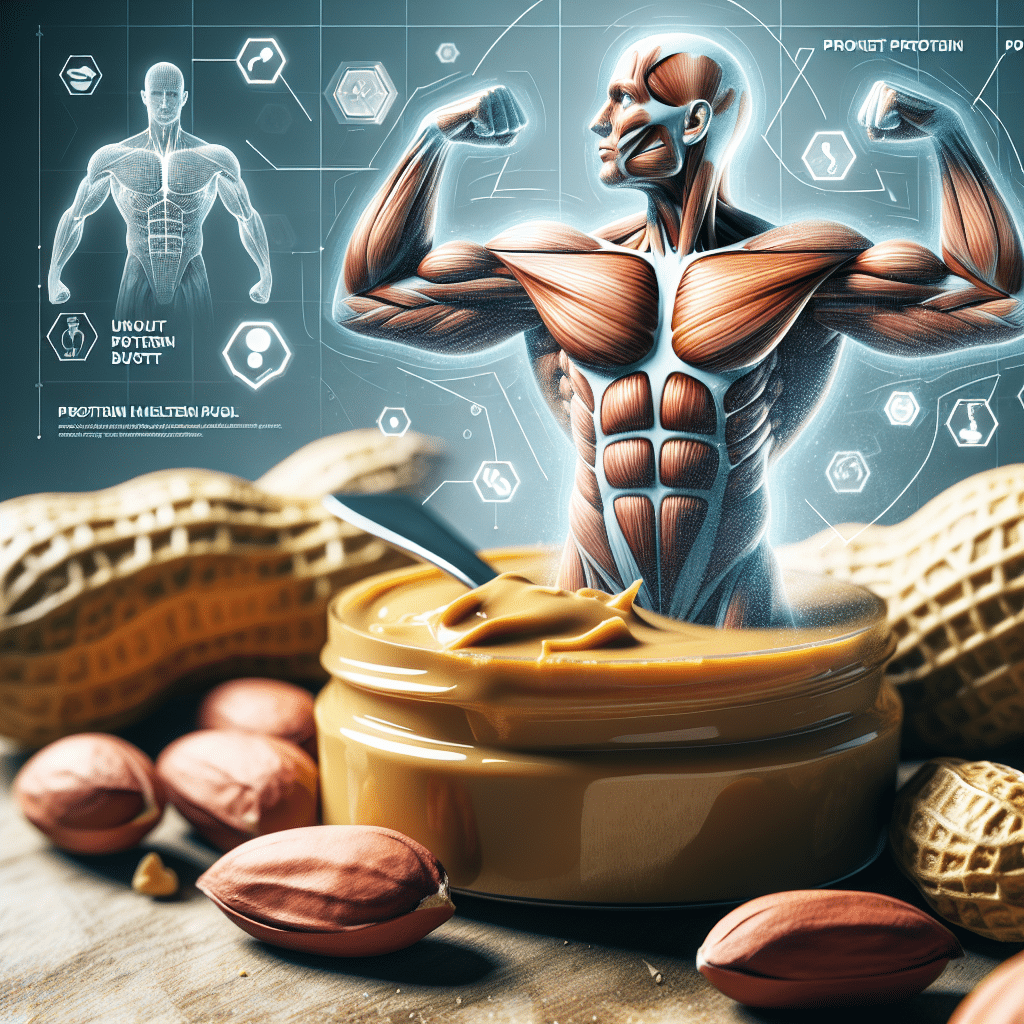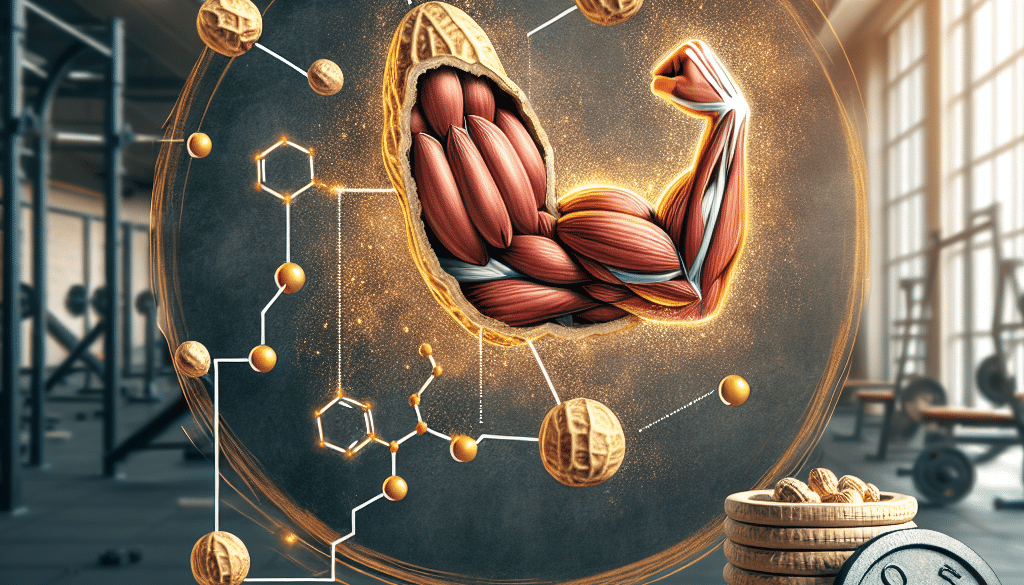Is Peanut Protein Good For Building Muscle?
-
Table of Contents
- Peanut Protein: A Muscle-Building Powerhouse?
- Understanding Protein and Muscle Synthesis
- The Nutritional Profile of Peanut Protein
- Comparing Peanut Protein to Other Protein Sources
- Research on Peanut Protein and Muscle Growth
- Practical Considerations for Including Peanut Protein in Your Diet
- Conclusion: The Verdict on Peanut Protein for Muscle Building
- Discover ETprotein’s High-Quality Peanut Protein Products
Peanut Protein: A Muscle-Building Powerhouse?

When it comes to building muscle, protein is the cornerstone of the diet for athletes and fitness enthusiasts alike. With the rise of plant-based nutrition, many are turning to alternative protein sources to meet their dietary needs. Among these, peanut protein emerges as a potential candidate for muscle synthesis. But is peanut protein truly effective for building muscle? This article delves into the science behind peanut protein and its role in muscle development.
Understanding Protein and Muscle Synthesis
Before assessing the efficacy of peanut protein, it’s essential to understand the relationship between protein and muscle building. Protein is made up of amino acids, which are the building blocks of muscle tissue. When you exercise, especially during resistance training, you create micro-tears in your muscle fibers. The body repairs these tears by fusing amino acids into new muscle protein strands, a process known as muscle protein synthesis (MPS).
For optimal MPS, the body requires a sufficient supply of all nine essential amino acids (EAAs), which must be obtained through diet as the body cannot produce them. The quality of a protein source is often measured by its amino acid profile and its digestibility.
The Nutritional Profile of Peanut Protein
Peanuts are not only a popular snack but also a rich source of plant-based protein. A 100-gram serving of peanuts provides approximately 25-30 grams of protein, making them a significant contributor to daily protein intake. Peanut protein contains a variety of amino acids, including a substantial amount of branched-chain amino acids (BCAAs), which are crucial for muscle building and recovery.
- Leucine: Known for its pivotal role in initiating MPS.
- Isoleucine: Helps with energy uptake and preserves muscle protein.
- Valine: Aids in muscle metabolism and nitrogen balance.
However, it’s important to note that while peanut protein contains all nine EAAs, it is relatively low in lysine, which may affect its overall effectiveness as a standalone muscle-building protein source.
Comparing Peanut Protein to Other Protein Sources
When compared to animal-based proteins like whey or casein, peanut protein has a different amino acid profile. Animal proteins are generally considered complete proteins because they contain all EAAs in sufficient amounts. Whey protein, in particular, is renowned for its high leucine content and rapid absorption, making it a favorite among bodybuilders and athletes.
However, peanut protein offers benefits that extend beyond its amino acid content. It is high in fiber, heart-healthy monounsaturated fats, and contains bioactive compounds such as resveratrol, which may provide additional health benefits.
Research on Peanut Protein and Muscle Growth
Studies on peanut protein’s effectiveness for muscle growth are limited, but existing research provides some insights. One study published in the “Journal of the International Society of Sports Nutrition” suggested that plant-based proteins could support muscle repair and growth to a similar extent as animal-based proteins when consumed in adequate amounts.
Moreover, research indicates that combining plant proteins with complementary amino acid profiles can create a complete protein source. For example, pairing peanut protein with a lysine-rich protein like pea protein could enhance the overall EAA content, making it more conducive to muscle building.
Practical Considerations for Including Peanut Protein in Your Diet
For those looking to incorporate peanut protein into their muscle-building regimen, there are several practical considerations:
- Consume a variety of protein sources to ensure a complete amino acid profile.
- Pair peanut protein with other plant proteins or animal proteins to compensate for its lower lysine content.
- Consider the timing of protein intake, aiming for a post-workout meal or snack that includes peanut protein to aid in recovery and MPS.
Peanut protein can be consumed in various forms, such as peanut flour, peanut butter, or peanut protein powder, making it a versatile addition to meals and snacks.
Conclusion: The Verdict on Peanut Protein for Muscle Building
In conclusion, peanut protein can be a valuable part of a muscle-building diet, particularly when combined with other protein sources to ensure a complete amino acid profile. Its rich array of nutrients and potential health benefits make it an attractive option for those pursuing a plant-based or varied diet. While it may not be as potent as some animal-based proteins in isolation, its contribution to overall protein intake and muscle health should not be underestimated.
Discover ETprotein’s High-Quality Peanut Protein Products
If you’re looking to enhance your muscle-building efforts with peanut protein, ETprotein offers a range of high-quality protein products that can support your fitness goals. Their peanut protein is characterized by a neutral taste, non-GMO, and allergen-free attributes, making it an excellent choice for those with dietary restrictions or preferences.
ETprotein’s commitment to purity and quality ensures that you receive a product that not only contributes to your muscle-building needs but also aligns with your health and wellness values. To explore their offerings and find the perfect protein solution for your regimen, contact ETprotein and email sales(at)ETprotein.com today.
About ETprotein:
ETprotein, a reputable protein and L-(+)-Ergothioneine (EGT) Chinese factory manufacturer and supplier, is renowned for producing, stocking, exporting, and delivering the highest quality organic bulk vegan proteins and L-(+)-Ergothioneine. They include Organic rice protein, clear rice protein, pea protein, clear pea protein, watermelon seed protein, pumpkin seed protein, sunflower seed protein, mung bean protein, peanut protein, and L-(+)-Ergothioneine EGT Pharmaceutical grade, L-(+)-Ergothioneine EGT food grade, L-(+)-Ergothioneine EGT cosmetic grade, L-(+)-Ergothioneine EGT reference grade and L-(+)-Ergothioneine EGT standard. Their offerings, characterized by a neutral taste, non-GMO, allergen-free attributes, with L-(+)-Ergothioneine purity over 98%, 99%, cater to a diverse range of industries. They serve nutraceutical, pharmaceutical, cosmeceutical, veterinary, as well as food and beverage finished product distributors, traders, and manufacturers across Europe, USA, Canada, Australia, Thailand, Japan, Korea, Brazil, and Chile, among others.
ETprotein specialization includes exporting and delivering tailor-made protein powder and finished nutritional supplements. Their extensive product range covers sectors like Food and Beverage, Sports Nutrition, Weight Management, Dietary Supplements, Health and Wellness Products, and Infant Formula, ensuring comprehensive solutions to meet all your protein needs.
As a trusted company by leading global food and beverage brands and Fortune 500 companies, ETprotein reinforces China’s reputation in the global arena. For more information or to sample their products, please contact them and email sales(at)ETprotein.com today.














